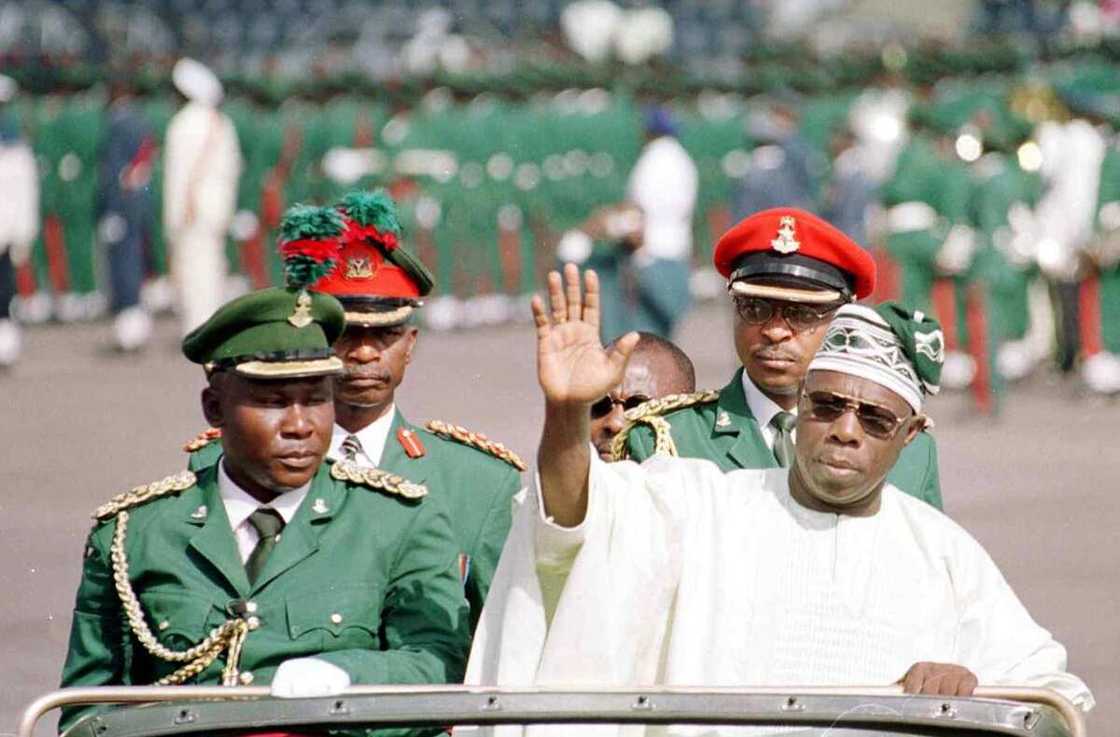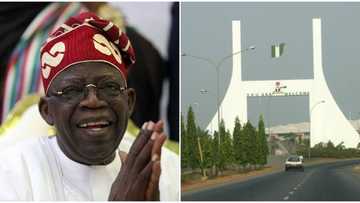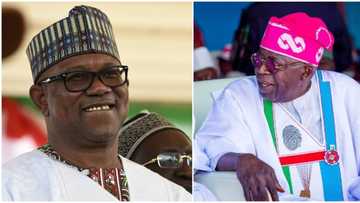May 29: 4 Symbolic Facts You Should Know About Eagle Square Ahead of Tinubu’s Inauguration
- The iconic Eagle Square will once again become a topic of discussion as Nigeria is on the verge of witnessing another historic government transition
- On Monday, May 29, Asiwaju Bola Ahmed Tinubu will be inaugurated as the executive president of Nigeria at Eagle Square
- However, the history of Eagle Square dates back to 1999, when Nigeria transitioned from military dictatorship to democracy
PAY ATTENTION: Сheck out news that is picked exactly for YOU ➡️ click on “Recommended for you” and enjoy!
The city of Abuja, Nigeria's capital, boasts several landmarks that reflect the nation's rich cultural heritage and progress.
Among them, is the iconic Eagle Square which has been very symbolic of Nigeria's national unity and democracy.

Source: Getty Images
In this article, we delve into the four symbolic wonders of Eagle Square that make it a true national treasure.
1. Symbol of Democracy
It was at this hallowed ground that Nigeria's transition from military to civilian rule took place in 1999, marking a turning point in the nation's history.
PAY ATTENTION: Share your outstanding story with our editors! Please reach us through info@corp.legit.ng!
The square's historical significance evokes feelings of pride and nostalgia, reminding Nigerians of their collective journey towards democracy and the importance of cherishing hard-fought freedoms.
And 24 years down the line, Eagle Square has continued to be the central point of Nigeria's democratic symbol.
2. Hosting National Events
As Nigeria's premier venue for national events, Eagle Square has witnessed numerous historic moments.
It has hosted presidential inaugurations since 1999, where the country's leaders take their oaths of office in front of a massive gathering of dignitaries and citizens.
Additionally, major cultural and political events, such as Independence Day celebrations and military parades, are held here, drawing large crowds and showcasing the nation's rich heritage.
3. A Major Landmark in Abuja
Yes! Eagle Square is one of the major architectural landmarks in the city of Abuja, located in the symbolic centre called the three-arm zone, where it flanks both the judiciary (Supreme Court and Court of Appeal, the House of Assembly and the Aso Villa).
It enjoys a central location in Abuja, the capital city of Nigeria, making it easily accessible to both locals and tourists.
Visitors can explore the square and its surroundings, capturing the grandeur of the architecture and experiencing the atmosphere of significant national events when they occur.
4. Architectural Design
Eagle Square is known for its remarkable architectural design. The square features a vast open space, encompassing a VIP pavilion, and over 2500 seats in covered terraces.
The Parking Garage is located behind the square and is designed to accommodate about 300 cars.
The surrounding buildings house various government offices and facilities like the Abuja International Conference Centre, Federal Secretariat, National Cenotaph, National Assembly, Supreme Court and the Aso Villa.

Read also
May 29: Tribal leaders to begin vigil in Abuja streets to intercept agents of parallel govt
May 29: Complete list of presidential inauguration ceremonies in Nigeria since 1979
Meanwhile, history will be made again on Monday, May 29, as Nigeria will witness a government transition.
President-elect Bola Ahmed Tinubu will be inaugurated at Eagle Square, Abuja, as the 16th President of Nigeria.
However, before the former Lagos state governor, Nigeria has witnessed a series of inaugurations since 1979.
Source: Legit.ng




